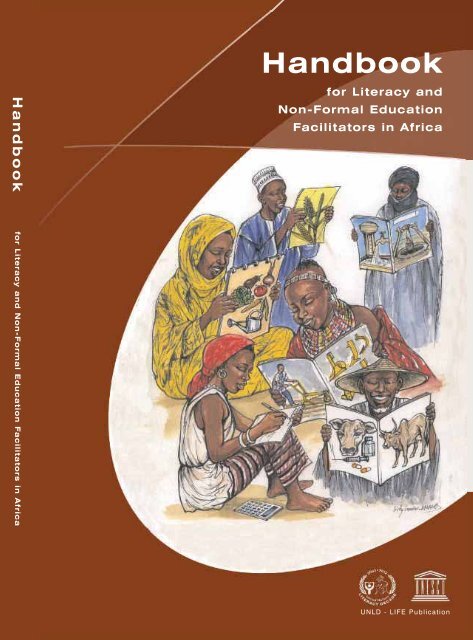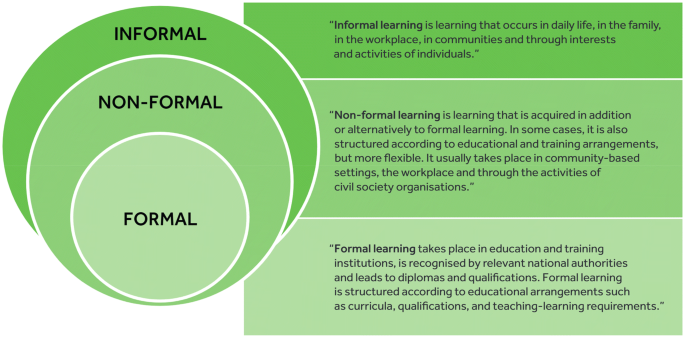

Knowledge Demystified: The Barefoot College. Information et orientation pour le dveloppement des jeunes africains. It caters to people of all ages but does not. Escuela Nueva: Alternatives for a new generation. It is often provided to guarantee the right of access to education for all. The defining characteristic of non-formal education is that it is an addition, alternative and/or complement to formal education within the process of the lifelong learning of individuals. Consequently, many countries have developed a national. Education that is institutionalized, intentional and planned by an education provider. Formal learning is intentional from the learner’s point of view. in an education or training institution or on the job) and is explicitly designated as learning (in terms of objectives, time or resources). The diffi culties involved in managing, evaluating and sustainably developing non-formal education are well-known, and we must strive to construct indicators that will be of assistance to these processes. Formal Education: Informal Education: Non-formal Education 'Learning that occurs in an organised and structured environment (e.g. For some terms, where, for example, there are regional differences, more than one meaning has been provided." p. Recognition, Validation and Accreditation (RVA) of non-formal and informal learning is one of the pillars of any lifelong learning policy. Finally, it should again be emphasized that non-formal education is an essential factor in rural development. Unattributed definitions were created in-house at the National Centre for Vocational Education Research (NCVER).

Where definitions have been written by other organizations, the source of that definition is acknowledged. To maintain an international perspective, other national and international glossaries and thesauri were consulted in conjunction with current TVET literature from around the world. The most common and significant terms (including acronyms) are listed and, in some cases, national and regional variations have been included. How does UNESCO define Non-Formal Education UNESCO (1987) has enunciated the following objectives of Non-formal Education Programmes. "The glossary aims to reflect the terminology found in the recent literature of technical and vocational education and training (TVET) research, policy and practice internationally. This glossary has been published in the "International Handbook of Education for the Changing World of Work" (Vol.

UNESCO-UNEVOC, National Centre for Vocational Education Research (NCVER), UNESCO/Australia


 0 kommentar(er)
0 kommentar(er)
